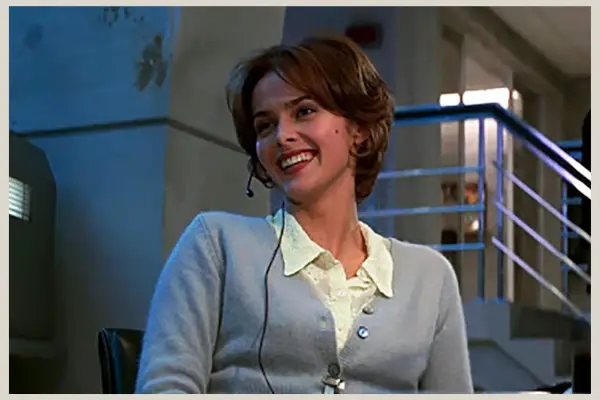Bond Isn’t Broken: Why Izabella Scorupco Thinks 007 Still Works Just Fine
It’s open season on James Bond. As Hollywood scrambles to reinvent its icons, the world’s most debonair secret agent has become something of a sitting duck. Critics call him outdated, even misogynistic, a remnant of a time when shaken martinis and shapely silhouettes were all a man needed to save the day.
But not everyone is eager to throw 007 under the Aston Martin. Izabella Scorupco, who starred opposite Pierce Brosnan in GoldenEye (1995), isn’t buying into the backlash. In fact, she’s quite refreshingly unapologetic about what Bond is, and what, in her view, he should remain.
Story continues below…
The Bond Girl with Backbone
Scorupco, who played Natalya Simonova—a skilled computer programmer who, it must be said, saved the world long before Bond got round to it—rejects the idea that Bond girls are passive eye candy. If anything, she believes they’ve always had more power than people credit them with.
As she explained, with trademark clarity:
“I think the previous ones [Bond girls] have been so much prettier and so much more as Bond Girls should be. And I think they shouldn’t actually change it more than they have done in this film because I think if they change it too much and the girls become too strong and too independent, Bond wouldn’t be Bond any more. I think he should be.”
It’s a stance that might bristle in some corners of social media, but her argument isn’t one of submission, it’s about balance. Scorupco isn’t defending sexism, but instead defending the fantasy. And in the Bond universe, fantasy has always played by its own rules.

A World of Women, Not Just Girls
Far from sidelined, Bond women have consistently brought brains, bravery, and complexity to the screen. Ursula Andress’s bikini may have launched a thousand think pieces, but her Honey Ryder was also resilient and resourceful.
From Barbara Bach’s Anya Amasova in The Spy Who Loved Me to Eva Green’s Vesper Lynd in Casino Royale, these characters have never been as simple as the phrase “Bond girl” implies.
Still, not all reflections have been fond. Rosamund Pike, who played the icy Miranda Frost in Die Another Day, has since revealed how she now regrets her Bond girl role, while Gemma Arterton has expressed regret over her underwritten role in Quantum of Solace, using her student loan debt as an excuse to take on the role.
Yet, these criticisms don’t negate the lasting cultural impact, or the career springboard, that often comes with the title. The Bond girl remains one of cinema’s most recognisable roles, and many of the women who’ve stepped into it have since shaped defining careers in film and beyond.
The Fantasy Is the Point
Scorupco pushes back on the idea that Bond needs to be overhauled for modern audiences. Her belief? Bond is Bond precisely because it operates in a heightened, glamorous realm, what she calls a “fantasy world.”

“I’m against those feminists who are screaming that he’s a chauvinist and everything – I think it’s ridiculous. It’s a fantasy world. It should always be on that level; otherwise, it’s not James Bond any more. It’s ridiculous. These people are probably not self-confident.”
Now, one could quibble with her phrasing. But her core argument is simple: in a cinematic landscape increasingly devoted to gritty realism and moral instruction, Bond remains defiantly old school. The tuxedos, the gadgets, the exotic locations, the magnetic charm, they’re not relics, they’re ritual.
And why shouldn’t there be room for that? Not every story needs to be a thesis on gender politics. Sometimes, audiences just want spectacle, stakes, and a character who knows the right wine pairing for veal.
Keeping Bond, Bond
To reduce James Bond to a sexist caricature is to ignore the evolution already present in the films. Daniel Craig’s Bond was more introspective, emotionally layered, even vulnerable. He mourned. He aged. He questioned his own relevance. That’s not regression, it’s progress done quietly, without breaking the illusion.
What Scorupco is asking for isn’t regression either. It’s preservation. A belief that women can be strong without needing to become Bond themselves, and that the original fantasy still has value—provided it knows when to tip its hat and when to adjust its cufflinks.

